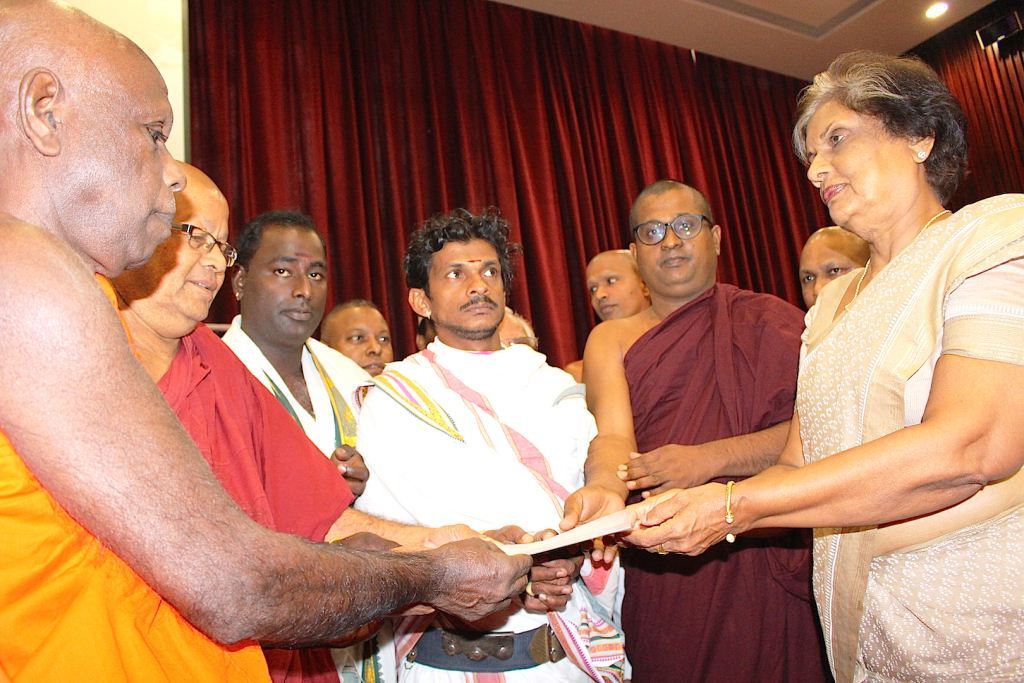Religious clergy and civil society activists from across the country on Monday urged the government to take concrete steps to ensure that peace and reconciliation were established in post war Sri Lanka.
The leaders handed over a six-point resolution to the Minister of National Co-existence Dialogue and Official Languages Mano Ganesan, Chairperson of the Office for National Unity and Reconciliation Chandrika Kumaratunga and Secretary-General of the Secretariat for Coordinating Reconciliation Mechanisms Mano Tittawella at a National Inter Religious Symposium organised by the National Peace Council (NPC).
The symposium was held under the NPC’s project that set up 12 District Inter Religious Committees (DIRCs) comprising leaders of all religions and ethnic groups, government officials, university academics and students and youth representatives.
The DIRCs worked towards conflict transformation and reconciliation by building support for the transitional justice process, especially truth telling and trust building within communities.
In the resolution the leaders urged the government to bring back to normalcy the lives of people who have been evicted from their homes and properties, pointing out that many of them are without homes or incomes even today.
The leaders said civil administration should be strengthened in keeping with the 19th Amendment because security forces still intervene in civil administrative activities and this hinders the freedom of life of the people in these areas. They added that the lethargic manner of working by certain government officials has hindered the improvement of infrastructure facilities and provision of various essential services.
The third point in the resolution said that there has not been specific and speedy action on missing persons and those who have been made to disappear illegally. “We firmly hope that the State mechanism for acting on the above matters will be strengthened and that action is taken to fulfill justice for the people affected directly and indirectly due to the war.” The leaders also asked for a compensation process without any form of discrimination.
The resolution pointed out that extremist political activity and extremist religious groups and individual activities were destabilizing society and called for several measures to avoid such situations such as the establishment of social protection monitoring committees, strengthening the action of the Women and Child Protection Committees and conducting formal counselling services aimed at those subject to severe mental stress.
The final point in the resolution suggested several steps for building national reconciliation including implementing the national language policy and paying attention to activities that will improve inter-relationships among the communities.
“If there are political groups, religious groups, government officials, civil society actors who will disrupt reconciliation, take legal action against them unmindful of their status,” the resolution said.
About 360 religious clergy, civil society activists and government officials attended the National Inter Religious Symposium.


